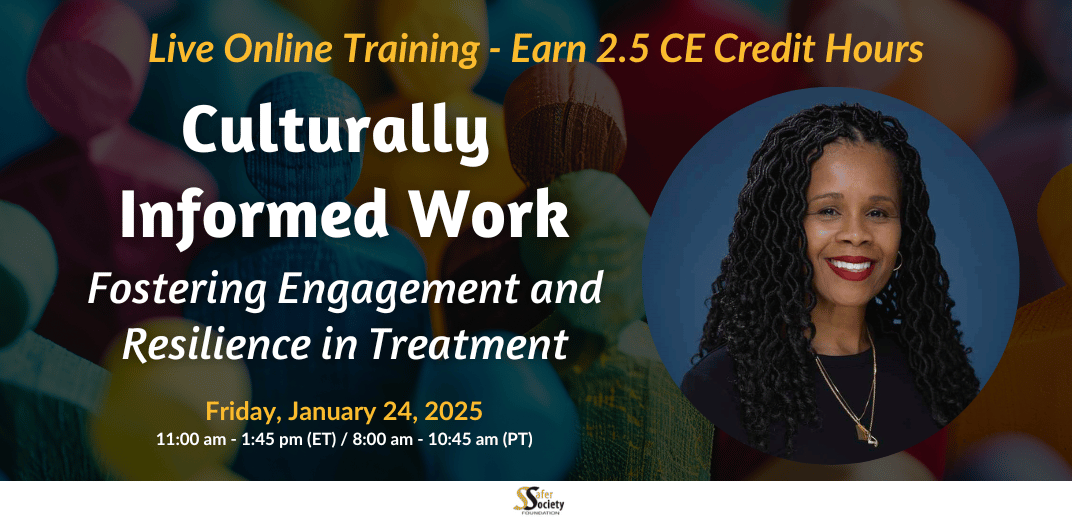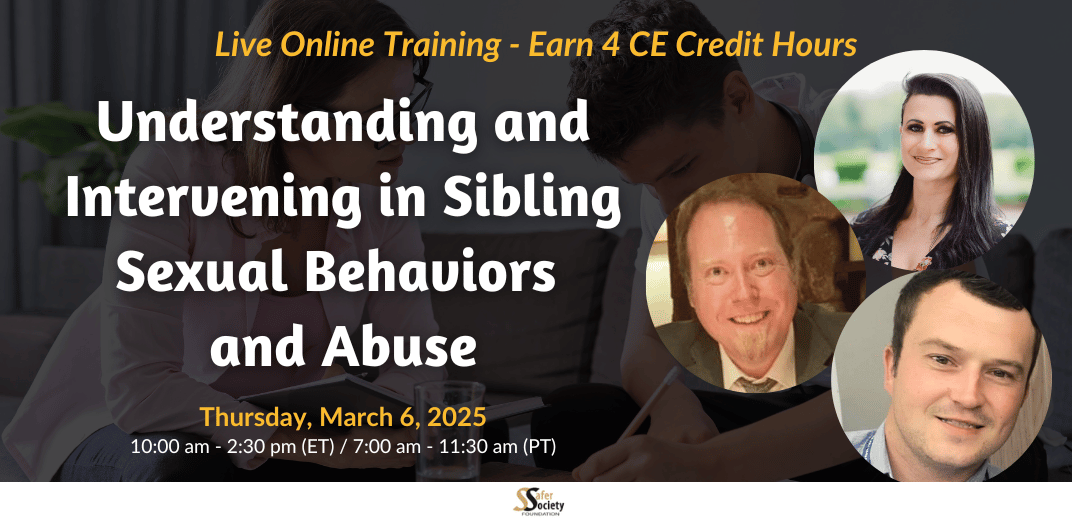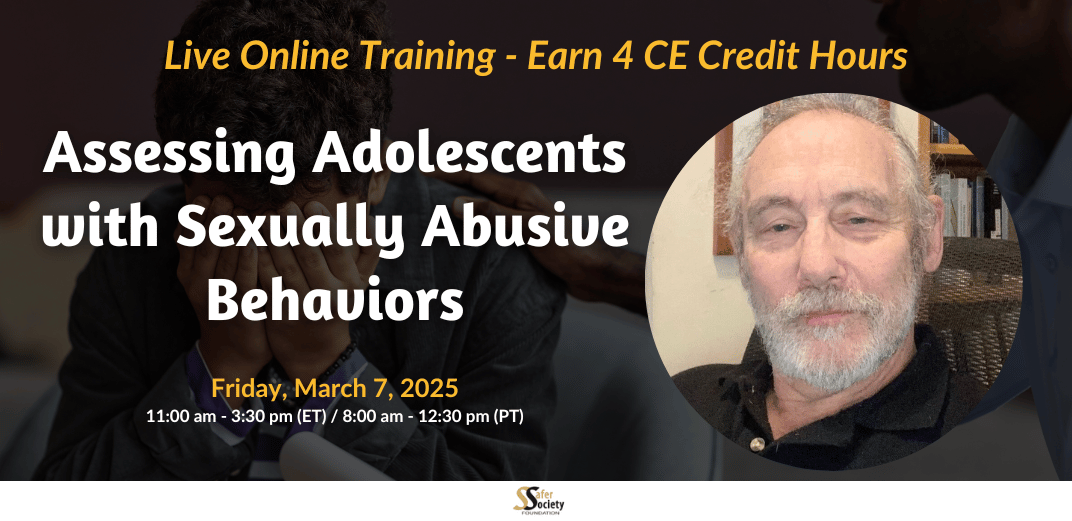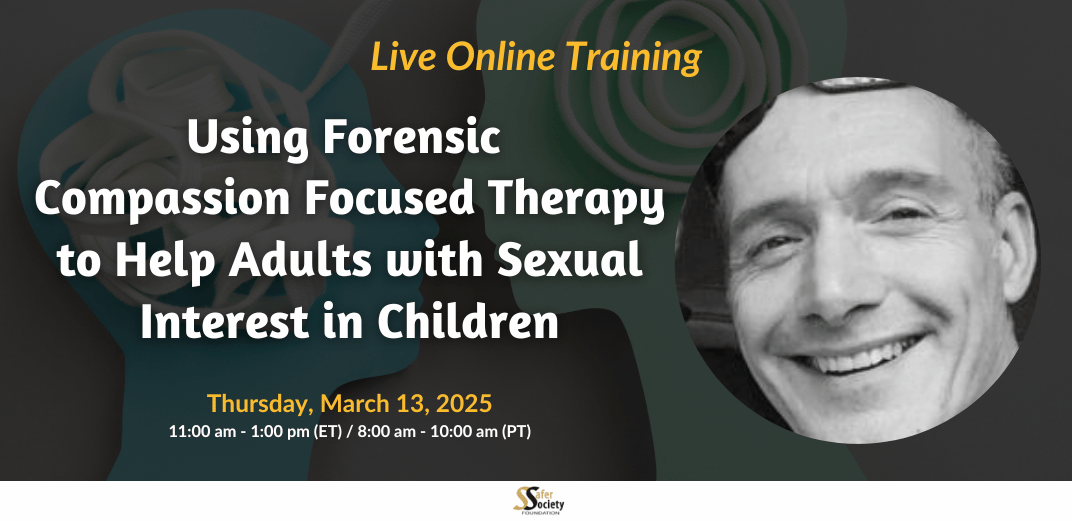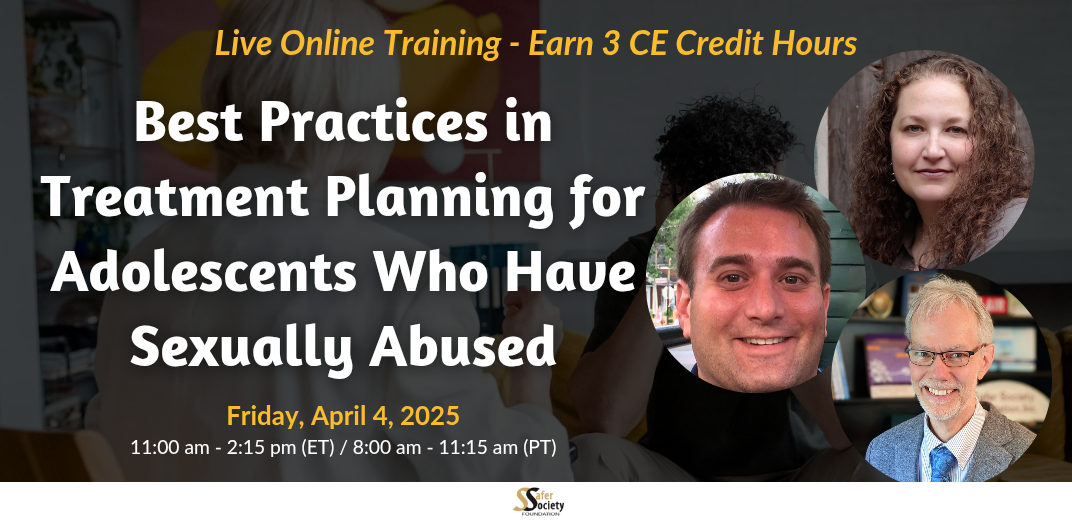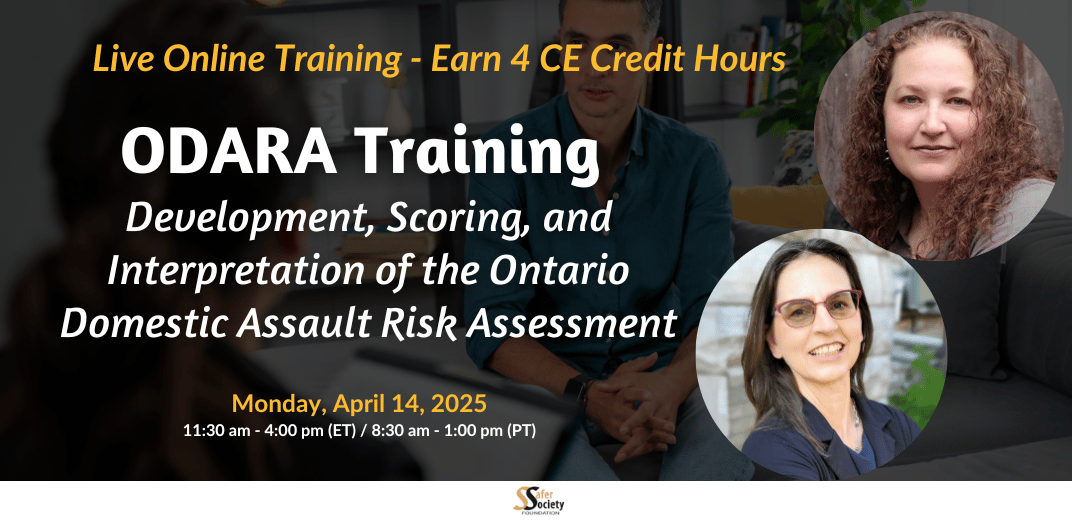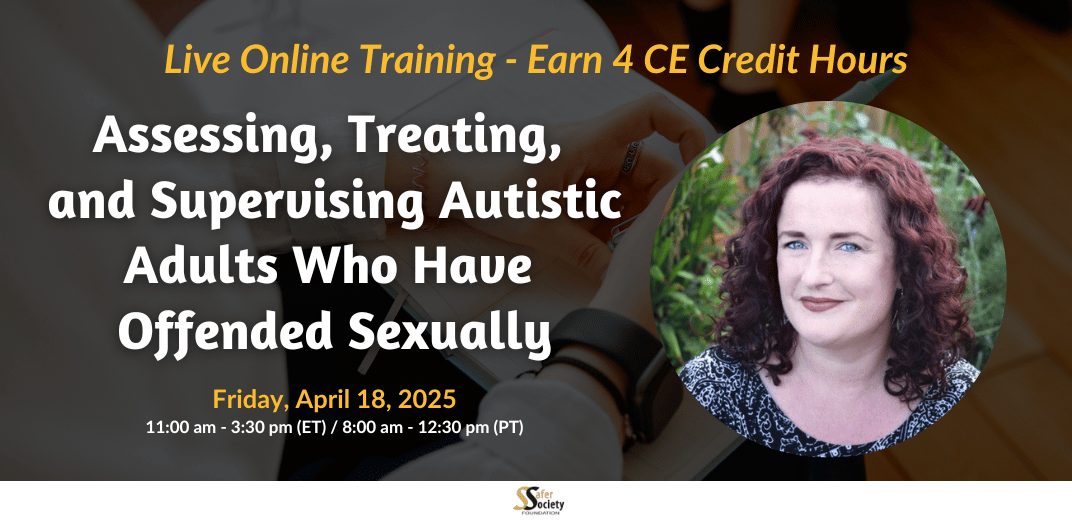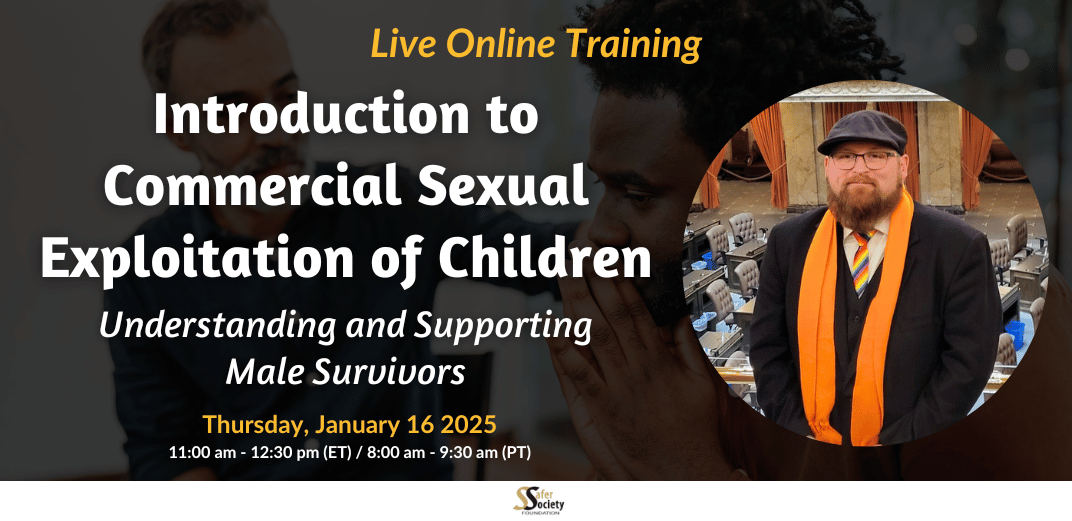
Introduction to Commercial Sexual Exploitation of Children: Understanding and Supporting Male Survivors
During this introductory training, presenter Nathan LaChine offers a comprehensive overview of CSEC, with a specialized focus on the unique experiences of male survivors. Participants join Nathan in exploring the full scope of this critical issue, beginning with essential terminology, definitions, and an understanding of the key dynamics that contribute to the exploitation of minors. The training sheds light on male victimization within CSEC, including risk factors and pathways of entry that uniquely affect boys and young men, such as dysfunctional familial dynamics, homelessness, and vulnerabilities unique to LGBTQIA+ youths.
Additionally, participants acquire the skills to identify early warning signs and risk indicators that could suggest a youth is being groomed, targeted, or actively exploited. LaChine incorporates real-life case studies and survivor testimonials to illustrate the complex experiences of male youths within the larger framework of CSEC.

